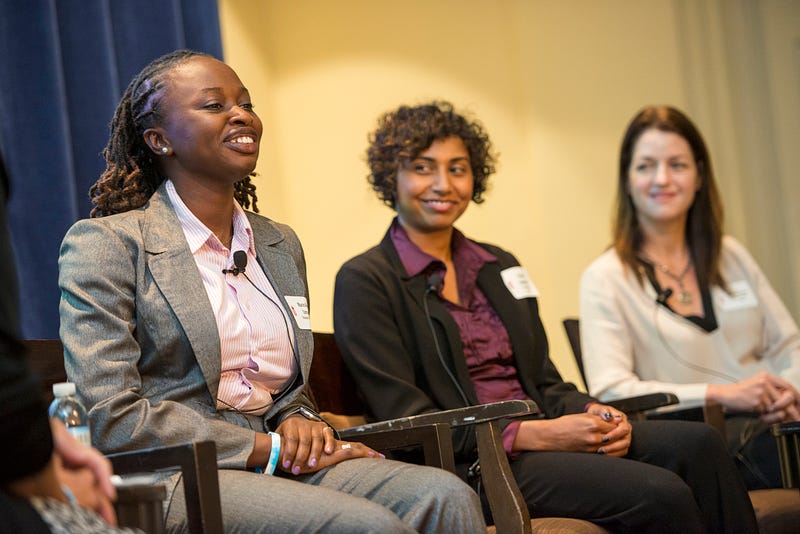Competing with AI in the Workplace
Why ‘Soft Skills’ like Public Speaking, Leadership, and Problem Solving Give our Graduates a Competitive Advantage
At our recent symposium in Washington, D.C. (Education, Skills & Employment: Changing the Status Quo for Women & Girls), a panel of experts* brought us the term “power skills” — emotional intelligence, empathy, and relational thinking. (These qualities are often referred to as “soft skills,” versus “hard skills” — job-specific expertise such as computer programming.)

At Akilah, we’re transforming students into job-ready experts with “hard skills.” Our information science and business management classes teach women to build apps, reinvent software, utilize data analysis, and more.
At the same time, we balance those skills with participatory learning in public speaking and leadership development, confidence and communications. We help students see the broader impact of business through a lens of sustainability—to think outside the box.
Research shows that what have been considered “soft skills”—(e.g. employees’ ability to solve problems, see the big picture, and inspire others) are actually essential for the future of work and of our world.
This recent article in the World Economic Forum states:
“(The future of globalization) is about balance. It will require that we communicate across cultures, sharing beliefs and approaches…It will require we use skills that many women have: the ability to have a strong emotional quotient, to understand body language and other people’s perceptions.”
So why are these skills going to be more crucial than ever before? The future of technology, robotics, and automation hold some of the answers:
“Skills like empathy are going to become differentiators as artificial intelligence and machine learning take over other tasks. These soft skills have generally been viewed as less important than hard ones, but in the Fourth Industrial Revolution, they will be more valuable.” — Njideka Harry CEO, Youth for Technology Foundation
Now is the time for more balance and less bias—a world where we value the internal as highly as the external. We plan to continue to train women in Rwanda to be the future of leadership in the workplace and in the world!
*The Akilah Institute, The Brookings Institution, the International Center for Research on Women, the International Labor Organization, the United Nations Girls’ Education Initiative, and UNICEF all partnered to host this day-long symposium. Our unique focus was on bridging the parallel conversations on youth workforce readiness and education-to-work transitions for young women, with the goal of better preparing young women to enter the workforce during and post education. Learn more about the symposium here.
